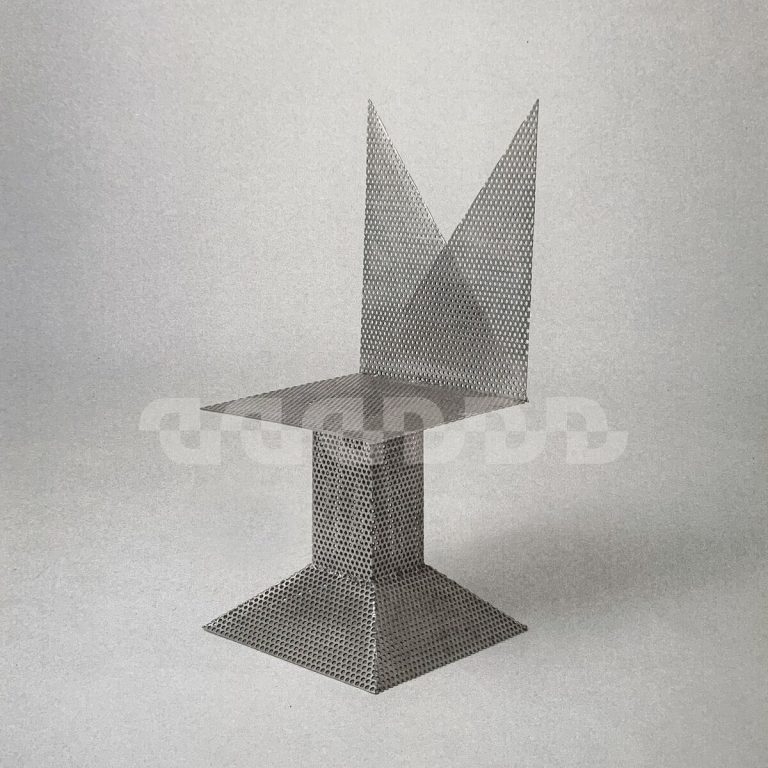A lot has happened in the five years since Drahla’s wonderful debut album Useless Coordinates was released. Seriously, take a minute to think about all that’s changed for you in that time, and cut yourself some slack that you made it. You can plan all you want against potential vicissitudes, you can plot your way through this wild thing called life to your heart’s content, but you can’t change the external forces that happen to you. With no hagiographic intent whatsoever to a self-confessed domestic abuser, life is what happens when you’re making other plans. This knowledge seeps through the core of angeltape, as Drahla aren’t the same beast they were on their debut. Change, adaptation, and identity are core elements of the record, undercut with icy post-punk rigidity.
The trio of Luciel Brown (guitar and vocals), Rob Riggs (bass, keys, and backing vocals) and Michael Ainsley (percussion) from Useless Coordinates days have added a fourth permanent member, with Ewan Barr’s guitar adding a further layer of kinetic verve. Chris Duffin once again splashes his glorious saxophone wailings over some tracks, the meandering nature of his work being the heart of the album as a whole. Whereas Useless Coordinates was a tightly wound ball of energy, angeltape feels more assured and more measured, yet still imbued with a sense of taut urgency.
Hidden amongst the often obfuscated and occasional stream of consciousness style lyrics, questions of identity and perception are key themes that run across the record’s 10 tracks. On the joyous opening track “Under the Glass” Luciel Brown asks “Until you reach resistance / What was it worth, what was it ever worth?” while on “zig-zag” the lines “Ah ok so I am here again / This is the point where I am so shot down” are delivered with a sense of weariness that’s so avoidant of emotion that you can’t help but feel it’s about the repetitive and incessantly oppressive nature of patriarchal hegemony.
Brown’s vocal delivery is cold and often dissociated from the spiky guitar work and staccato stroked drums. Half-spoken, her phrasing on occasion feels cold, stoically aloof and divorced from the frenetic energy of the music. It’s actually the defining brilliance of Drahla, but one that will no doubt deny them as wide an audience as they deserve (mostly due to the fact that people often don’t know what’s good for them).
“Default Parody” has the same stop-start skittish energy as Bikini Kill’s “Alien She”, and there’s a sense of alignment of narrative tone between the songs. The guitars play off one another, the presence of Ewan Barr is most pronounced on this song as the juxtaposition between restriction and potentiality are showcased. The riffs at the centre of the song highlight Drahla’s ability to create earworms, also shown on “Second Rhythm” and “Talking Radiance” which dig themselves into your psyche long after they’ve finished playing. The latter is the epitome of Drahla’s dichotomous strengths – the ability to utilise both control and chaos. Its rigid guitar and bass lines contrast wonderfully with the drums and saxophone that interweave over one another to create something that feels tight, yet could fall apart at any moment.
It’s not often that an album’s best track is its last, but this is the case here as “Grief in Phantasia” trots along with a bounce that places Drahla somewhere between This Heat and early Talking Heads. It’s the loosest track on the album, lacking some of the fierce inflexibility displayed elsewhere, as if the existential shackles of cool have been taken down several notches. The second half of the album in general shows a different side to the band, a move away from the spaces they’ve existed in before as they branch out, emboldened to explore and develop. The piano-led “Venus” feels like a cascading mellow fever dream, while the instrumental “A” is a weird melding of Television and Zu – something that shouldn’t work, yet does with aplomb.
angeltape highlights a band comfortable in their own aural space, while also looking to move into new sonic territories. It’s a consistently good album, and one that harks back to their previous work while also suggesting new possibilities as they move forward. It would be nice if they could take less time to get the next album out, though.

